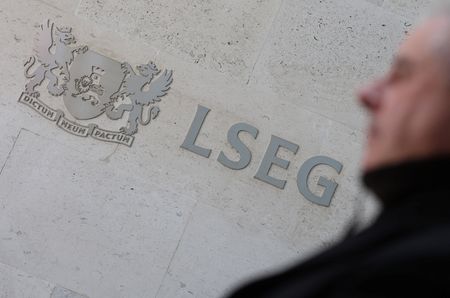LONDON (Reuters) -Britain’s budget watchdog has told finance minister Rachel Reeves that it was likely to downgrade its productivity forecasts, adding to fiscal pressures ahead of her annual budget on November 26, the Financial Times reported on Tuesday.
“We don’t know precisely what they are going to say on productivity, but we have been given indications there will be a downgrade,” the FT quoted an unnamed government official as saying.
Britain’s finance ministry had no immediate comment on the report, which raises the prospect of bigger tax rises later this year.
The Office for Budget Responsibility’s forecasts of Britain’s future productivity growth have long been higher than those of most private-sector economists and the Bank of England.
In July, the OBR said it had been too optimistic in its past growth forecasts, increasing expectations among economists that there would be a downgrade later in the year.
J.P. Morgan economist Allan Monks said at the time that a 0.1-0.2 percentage point downgrade in the OBR’s budget forecast would cost the public finances 9-18 billion pounds ($12 billion-$25 billion) a year.
The Office for Budget Responsibility forecast in March that Reeves only had a narrow 9.9 billion pounds of leeway to meet her main self-imposed budget target of balancing day-to-day spending with tax revenue in 2029/30.
The FT reported that officials thought the total fiscal hole in November’s budget could run to “tens of billions” of pounds, with the OBR downgrade making up a large part of this.
Last month, the National Institute of Economic and Social Research think tank predicted that Reeves would need to undertake more than 50 billion pounds of fiscal tightening to restore her 10 billion pounds of headroom.
Many other economists have forecast a gap of at least 20 billion pounds.
($1 = 0.7330 pounds)
(Reporting by David Milliken; Editing by Alex Richardson)










